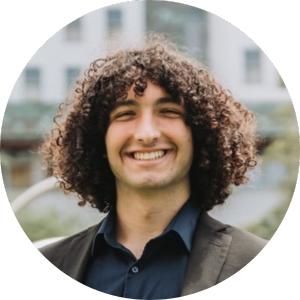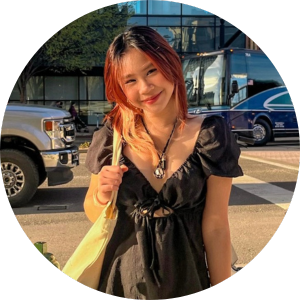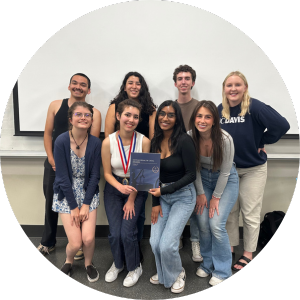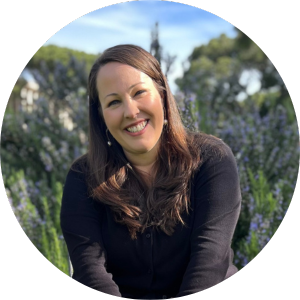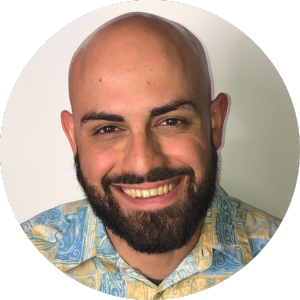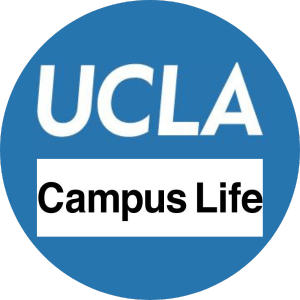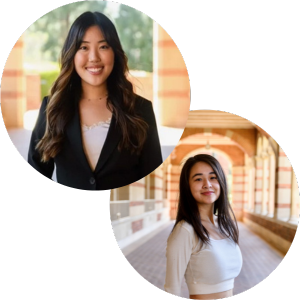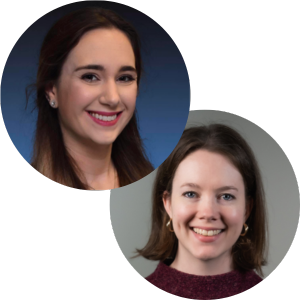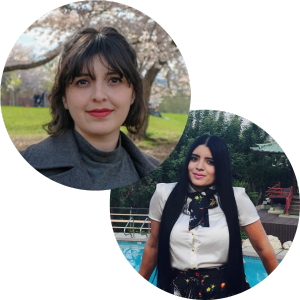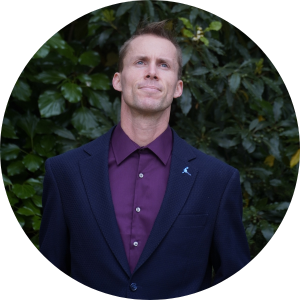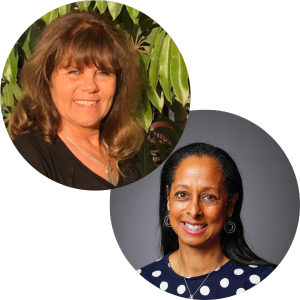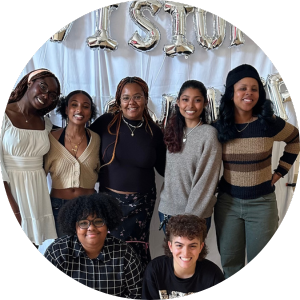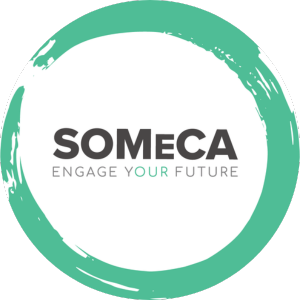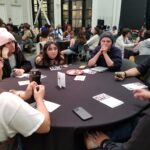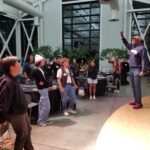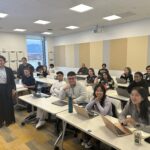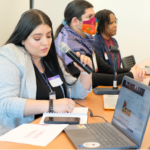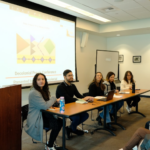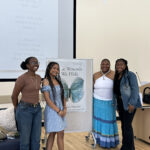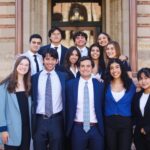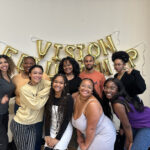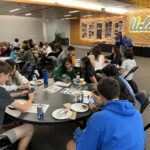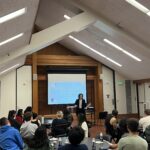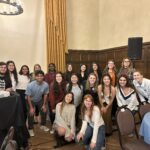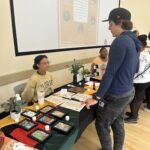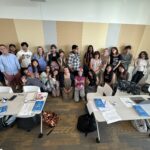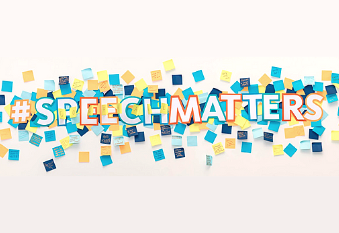Programs
2024 VOICE Recipients
PROGRAM DETAILS
In the last year, we have seen our democratic values significantly weakened by political polarization, misinformation and hate crimes. In light of this, the 2024 VOICE Initiative focuses on the theme of “Protecting our Democratic Freedoms.” VOICE projects focus on creating and strengthening opportunities for students, staff and faculty to impact their UC campus communities. Click here to view photos from the projects.
Creating Citizens Speaker Series
Project Lead: Alexander Edgar, Undergraduate Student, Political Science
Young people’s voices are an integral part of our democracy. Yet, Gen Z and Millennial voters consistently turn out at lower rates than older generations. To inspire youth civic engagement the Associated Students of the University of California Vote Coalition and the Commonwealth Club launched a first-of-its-kind partnership: the Creating Citizens Speaker Series in 2022. This speaker series gives UC Berkeley students and community members the opportunity to listen to and ask questions of leading minds in politics, media, and education as they learn how to become better, more involved citizens.
Now in 2023, we are taking what we learned from our incredible past events with speakers like CA Attorney General Rob Bonta, Vice Chair of the CA Democratic Party Betty Yee, and Tennessee State Representative Justin Jones, and expanding this program to reach more students and engage them more directly with our democracy. Additionally, in the lead-up to the 2024 primary and general elections, we will host candidates for local, state, and federal offices in town halls and debates on campus to help students and community members make the most educated votes possible.
Citizens of Today
Project Lead: Jennifer Tran, Undergraduate Student, Political Science
In order to increase local civic engagement and voter registration, the Associated Students of the University of California Vote Coalition will be hosting a series of three events from September through October called "Citizens of Today." Coordinating voter registration and civic education resources and activities at three different sites, the UC Berkeley campus, local east bay high schools, and local east bay elementary schools, Citizens of Today aims to teach students, young adults, and children that civic engagement is possible outside of election-day or without the ability to yet vote. To spread this message and encourage regional youth to become and stay deeply civically engaged, we will have teams of volunteers holding academic civic-oriented lessons, hosting workshops, and registering/pre-registering students to vote across the regional Berkeley area in educational spaces. This event is one of many pieces in UC Berkeley's commitment to creating a more democratic culture and society.
Davis Journal of Legal Studies: Volume IV
Project Lead: Aaron Guerra, Undergraduate Student
Davis Journal of Legal Studies (DJLS) is a student-led legal studies publication at the University of California, Davis. DJLS was created in June 2020 due to the recognition of the necessity for undergraduate opportunities in pre-law studies, academic publication, and research. Our mission is to increase access to legal studies by making legal research widely and freely available. We also seek to empower undergraduate students by platforming their legal research and analysis.
All University Leadership Conference (All-U)
Project Lead: Ellen Whitehead, Associate Dean of Students/Student Life & Leadership
The Randy Lewis All-University Leadership Conference (All-U) is held in early fall quarter at UCI for student leaders. The conference focuses on inspiring and empowering students to believe in themselves as the leaders their communities need. We will create various spaces for students to share their life experiences and values and listen and learn from their peers. Storytelling is a powerful tool to uplift students and validate them as leaders. The intentional learning environment will foster self-agency, community building, and enhanced leadership skills. The conference will also identify speakers to address the topics of protecting democratic freedoms and community engagement.
The Local Motive: Building the Muscle of Civic Engagement
Project Lead: Dimitri Gean, Resident Director, UCLA Residential Life
A strong culture of civic participation undergirds the health of a robust democracy, and universities are uniquely poised to inculcate such a culture among young voters. The Local Motive is an initiative that aims to familiarize students with non-electoral local political engagement to supplement the act of voting. The initiative will consist of a seminar class available to interested students, followed by an event to raise awareness of local political participation. A fellowship will be offered to a student who is interested in helping design and execute this initiative.
Democracy Workshops: Preparing for the 2024 Election
Project Lead: Philip Goodrich, Manager of Campus Life Initiatives, UCLA Student Affairs
Democracy Workshops are educational sessions aimed at preparing UCLA students to engage with democracy – both in the 2024 election season and beyond. While some might consider the 2023-2024 academic year an “off-season,” we view it as an opportunity to guide members of the campus community through the skill development necessary to be active participants in the political process. Some topics these workshops will address include: news and media literacy, talking about politics during a polarized time, understanding your ballot and being an informed voter, and influencing others and the political process. The idea for Democracy Workshops arose from the realization that the UCLA campus – along with all other institutions of higher learning – can and should do more to live up to our historic democratic purpose of producing informed and engaged citizens (broadly defined). Although UCLA has a student voting rate that is much higher than the national average – 76.6% compared to 66% in the 2020 election (Institute for Democracy and Higher Education, 2021) – we can always do more to improve these numbers, help students become more informed voters, encourage political engagement beyond voting, and serve as a campus model for both the UC system and the higher education sector at large. Additionally, we are committed to reaching students who do not have the privilege of voting (e.g., undocumented, international, formerly incarcerated, underage) yet who make up an important and impactful portion of our student population. Thus, these workshops will broaden our notion of civic engagement and make democratic engagement a more inclusive practice.
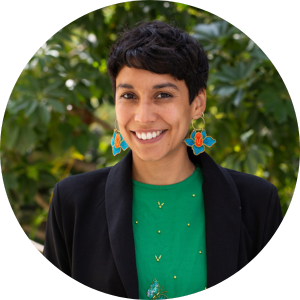
Restorative Practices & Democratic Civic Engagement: building restorative communication practices & spaces at UCLA in the aftermath of the UAW labor strike
UCLA
Restorative Practices & Democratic Civic Engagement: building restorative communication practices & spaces at UCLA in the aftermath of the UAW labor strike
Project Lead: Felicia Graham, Graduate Student, Ph. D. Education, Social Science and Comparative Education
The Restorative Practices & Democratic Civic Engagement project provides students, faculty and staff at UCLA access to hands-on, experiential learning about the use of restorative practices in professional and collaborative settings in the aftermath of the Fall ‘23 strike of Academic Student Employees. Through a sequence of restorative circles this project aims to elevate and sustain continued civic dialogue and conversation around the usefulness of restorative practices throughout the 2023-24 year at UCLA, and to develop an understanding of what students, faculty, and staff need to move forward together. By providing spaces and resources to build trust and understanding, the goal is to help build and sustain a university community where individuals and departments have access to the tools they need to support healing in working and professional relationships. This restorative series will provide models for the next generation of students to become university leaders committed to uphold Democratic values through intentional relational practices, and highlights practical tools for ’everyday’ civic engagement through restorative communication and listening techniques to build trust and empathy.
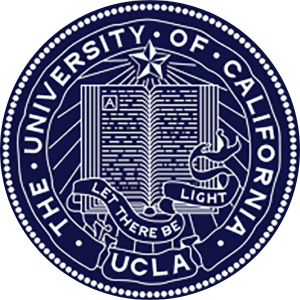
UCLA Undergraduate Law Journal, Volume XXIII
UCLA
UCLA Undergraduate Law Journal, Volume XXIII
Project Lead: Mischa Gureghian Hall, Undergraduate Student, Global Studies
The UCLA Undergraduate Law Journal is one of the leading student-run academic publications of undergraduate legal scholarship in the United States. The Journal provides undergraduate student contributors from universities across the world to showcase research on contemporary legal, political, and social issues. Through a collaborative editorial process, the Journal produces high-quality works of legal research which aim to contribute to the literature of their respective areas of study. Moroever, the Journal serves as a forum for passionate students to substantively participate in legal debate and scholarship in a manner that helps prepare them to be future leaders in their chosen fields and professions.

BruinsVote Social Media Fellowship: Promoting Civic Literacy, Voter Education, & Democratic Engagement at UCLA
UCLA
Read Report
BruinsVote Social Media Fellowship: Promoting Civic Literacy, Voter Education, & Democratic Engagement at UCLA
Project Lead: Karen Hedges, Deputy Director Residential Life
The Fellowship will provide one UCLA student with a paid opportunity to support BruinsVote—UCLA’s non-partisan vote coalition—in promoting civic literacy, voter education, and democratic engagement through one of today’s most powerful tools: social media. The Fellowship will provide two primary benefits to the campus community. First and foremost, the Fellowship will offer a student the opportunity to learn and develop valuable communication and marketing skills, including content creation, graphic design, copyediting, social media management, and public affairs. In addition to these skills, the fellow will have a meaningful experience developing their own civic literacy, awareness, and competencies. Supervised by staff within Student Affairs, the fellow will also receive thoughtful mentorship, undergo career and professional development, and form meaningful connections with a variety of stakeholders on and off campus. Secondly, the Fellowship will help BruinsVote expand its online presence and outreach efforts in advance of the 2024 Election. In an attempt to move to a more institutionalized approach to civic engagement, BruinsVote aims to maintain a consistent, year-round social media presence to establish a campus culture of democratic engagement. Examples of content and campaigns include civic holidays, election education, Bruins in government, internal and external democratic engagement opportunities, highlights of campus partners, and, of course, logistical information about voting, upcoming programming, and ways to get involved. Overall, the Fellowship will help diversify, expand, and strengthen the ways in which civic and voter engagement efforts reach the Bruin community.
Reproductive Health Justice Forum
Project Lead: Jennis Kang & Annabel Chen, Undergraduate Students
The Undergraduate Students Association Council’s Student Wellness Commission (SWC) will bring a reproductive health justice forum to both undergraduate and graduate students to facilitate productive conversations around reproductive health, with administrative support from ASUCLA. This forum will include a panel of community and content experts followed by small, moderated discussions; and will conclude with a resource fair that will bring information and access to campus provided resources for students. Our primary goal is to create a safe and welcoming space for all to gather and engage in productive discourse on topics that are important, but sensitive. We aspire to provide a platform to center marginalized voices and deliver critical information and resources to students. Finally, we hope to collaborate across various campus departments and student organizations to foster community.
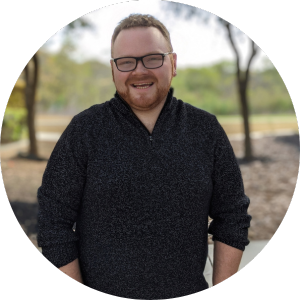
Bridging the Great Divide: Exploring the Coexistence of Academic Freedom and Duty to Accommodate
UCLA
Read Report
Bridging the Great Divide: Exploring the Coexistence of Academic Freedom and Duty to Accommodate
Project Lead: Spencer Scruggs, Director, Center for Accessible Education
Higher education institutions are very familiar with their obligation to ensure reasonable and appropriate accommodations are provided to disabled students who may need them. Accommodation processes also rely on other campus constituents, chiefly faculty who have long expressed both a desire to provide reasonable accommodations and rigorously defend their academic freedom. As higher education institutions return to in-person instruction, this question of balancing disability-related accommodations and academic freedom has caused further divide between faculty and Disability Resource Offices. In a climate of increasing numbers of students seeking accommodation, expanding expectations of faculty around teaching and research, and persistent political threats to the sanctity of academic freedom, both faculty and higher education staff are unsure of how to best resolve what is often see as a philosophical conflict. The overall goal of this project is to chronicle the multiplicitous ways in which higher education institutions balance the academic rights of faculty to practice their pedagogy how they see fit with the legal obligation of the institution to accommodate disabled students in an effective manner. Through the development of a podcast, the project will (1) elucidate the different environment, political, and pedagogical factors that influence this balance, and (2) demonstrate how institutional, departmental, and individual values adjust accommodation practices in light of faculty academic rights. Highlighting the real stories and perspectives of faculty, staff, and students who are a part of the tug-and-pull between academic freedom and duty to accommodate, the podcast will encourage further discussion and exploration about how both constructs can coexist and potentially support each other.
How to foster dialogue and promote civic engagement in the classroom
Project Lead: Dr. Annie Ditta, Assistant Professor of Teaching & Hayden Schill, Assistant Professor of Teaching
The goal of this project is to increase the capacity of UC educators to facilitate effective communication and promote civic engagement within their classrooms by providing workshops drawing upon evidenced-based teaching practices and experts in the field. The workshops will offer an overview of teaching techniques and activities that have been shown to promote effective dialogue in the classroom as well as ways to incorporate civic engagement into a variety of course topics. Our aim is for instructors — whether new graduate student instructors or tenured professors — to leave the workshop with: 1) new ideas for how to promote classroom dialogue around topics such as political issues, 2) a greater sense of agency for and confidence in being able to incorporate those ideas into the courses they teach, and 3) the resources and materials for executing those ideas. Graduate students, faculty, and lecturers are often under trained in effective teaching, especially with regard to fostering open dialogue and communication about potentially polarizing topics in the classroom. Our project not only aims to help fill this gap of knowledge, but also to catalyze the development of similar workshops, materials, and training via existing programs on various campuses aimed at enhancing instructor training.
2nd Decolonial Praxis Conference
Project Lead: Dulce Anahi Alarcon Payan & Zaira J Vidal Cortes, Graduate Student, Ph.D. Spanish Linguistics (Hispanic Studies)
The Conference on Decoloniality serves not only as an academic space, but also as a space for activists, community organizers, and academics to discuss decolonial theories, pedagogies, research methods, and praxis, especially BIPOC. In Western academia, decoloniality is still a marginalized topic. This project will solidify this open and safe space for not only academics but also activists and community organizers from the local community and from other regions and countries to build a decolonial community that allows the creation of a decolonial international network to increase the impact of the projects and research of participants and join efforts to build projects together. The conference will build on the previous Decolonial Conference organized in March 2023 with panels where academics, activists, and community organizers came together and dialogued about their projects and experiences, allowing discussions to transcend academia and be transdisciplinary. Moreover, there will be panels in both English and Spanish, and we will offer interpretation to advocate for linguistic justice, allowing international participants from Mexico, Latinx populations, and other underrepresented groups in and outside the United States to be included in the discussion of inclusivity and the production of knowledge in academia. The 2024 Conference will follow the format of the 2023 Conference, including a general assembly where all participants can discuss on equal terms to develop a Declaration that guides the work of the Decolonial Community.
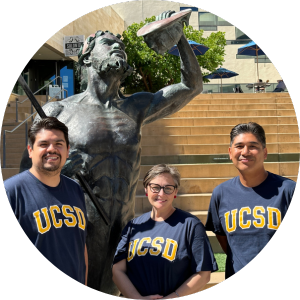
W.A.V.E.S. (Widening Access, Voice, Engagement, & Service): Triton Civic Engagement & Changemaking Initiative
UC San Diego
Read Report
W.A.V.E.S. (Widening Access, Voice, Engagement, & Service): Triton Civic Engagement & Changemaking Initiative
Project Lead: Alfredo Barcenas, Director of Student Governments, Auxiliaries and Services/Student Life
W.A.V.E.S. will serve as a centralized project among various UCSD campus stakeholders that focus on civic engagement and changemaking by establishing it as a driving force for students to find their voice, become educated on local and national issues, and embark on their own changemaking journey. This project will serve as a foundation in developing a pipeline of civil discourse and civic professionalism by involving students in local community dialogues, introducing them to experts leading the work in civic engagement, and engaging them to create action over the course of an academic year. W.A.V.E.S. aims to provide knowledge of how organizations function in their advocacy and how members of our community can engage with each other to create change and a space for students to put their knowledge into action through a community partner driven project showcase.
Campus Dialogues
Project Lead: Josh Kuntzman, Assessment Coordinator, Office of Budget & Planning / Office of Teaching & Learning
The Campus Dialogues project at UC Santa Barbara works to co-create with students an inclusive, facilitated discourse space where members of the campus community can learn about each others’ experience-based beliefs, values, and priorities regarding controversial and locally relevant topics of interest. The aim of these quarterly talks is to highlight students’ common concerns, clarify the underlying emotional/experiential reasons behind varied perspectives, and foster a democratic environment where diverse views can co-exist with curiosity and respect. Topics will be chosen by students on campus via tabling sessions each quarter, leading to professionally facilitated 2-hour town hall discussions, which will be recorded to share as a model for other campuses and learning communities.
Civic Engagement Scholars Program
Project Lead: Viviana Marsano, Director, Civic & Community Engagement & Isla Vista Liaison & Katya Armistead, Assistant Vice Chancellor & Dean of Student Life
The Civic Engagement Scholars Program at UC Santa Barbara fosters ideals of active citizenship among undergraduate and graduate students, engaging the next generation of leaders on issues that are of import to our campus and to the surrounding communities of Isla Vista, Goleta, and Santa Barbara. In this three-quarter-long course, students will study the theoretical framework and historical background of civic engagement in the American university. While doing so, students will engage in leadership development, learn skills for deliberative discourse, and design workshops incorporating these issues and skills. The fall quarter will be focused on learning history and skills and in the winter and spring quarters, students will deliver their designed workshops to the campus and Isla Vista community.
This program represents a joint effort by four entities at UC Santa Barbara: the Walter H. Capps Center for the Study of Ethics, Religion, and Public Life; the Dean of Students Office; Civic and Community Engagement, and the Office of Student Engagement and Leadership (SEAL).
Vision Fellowship
Project Lead: Ashlee Priestley, Academic Achievement Counselor
The Office of Black Student Development's Vision Fellowship is a cohort based year long program in which students can apply with a passion project of their choosing and receive various resources in order to successfully bring their project to fruition such as a stipend, a mentor, physical workspace, and support with distribution. Although the year's incoming cohort goes through a more rigorous year-long journey, students are able to continue their projects beyond their cohort year and build on their existing project themes to expand the depth and reach of their work.
This is Our Future: Take Back the Vote
Project Lead: Katherine Canales-Molina, Associate Director of SOMeCA
Student engagement in local, state, and national elections is far from being a constant. It has peaks and valleys, despite the many political issues that concern students deeply. This project will grow ongoing student civic engagement at UC Santa Cruz by building a cohort of students, utilizing the attention that will be generated by the upcoming general elections. We plan to build on our pilot program beginning with a kickoff event, a keynote speaker, facilitated dialogues, and workshops. The project will link on-the-ground issues that students experience in their everyday lives with national policies and platforms to inspire action and involvement. Following the kickoff event, we will establish a dynamic workgroup of student leaders that will experiment with fostering structures that support continuity in understanding and valuing democratic practices. The Student Civic Engagement workgroup will create new programming from the ideas generated by the dialogues and will draw lessons from the different forms of engagement that result.
